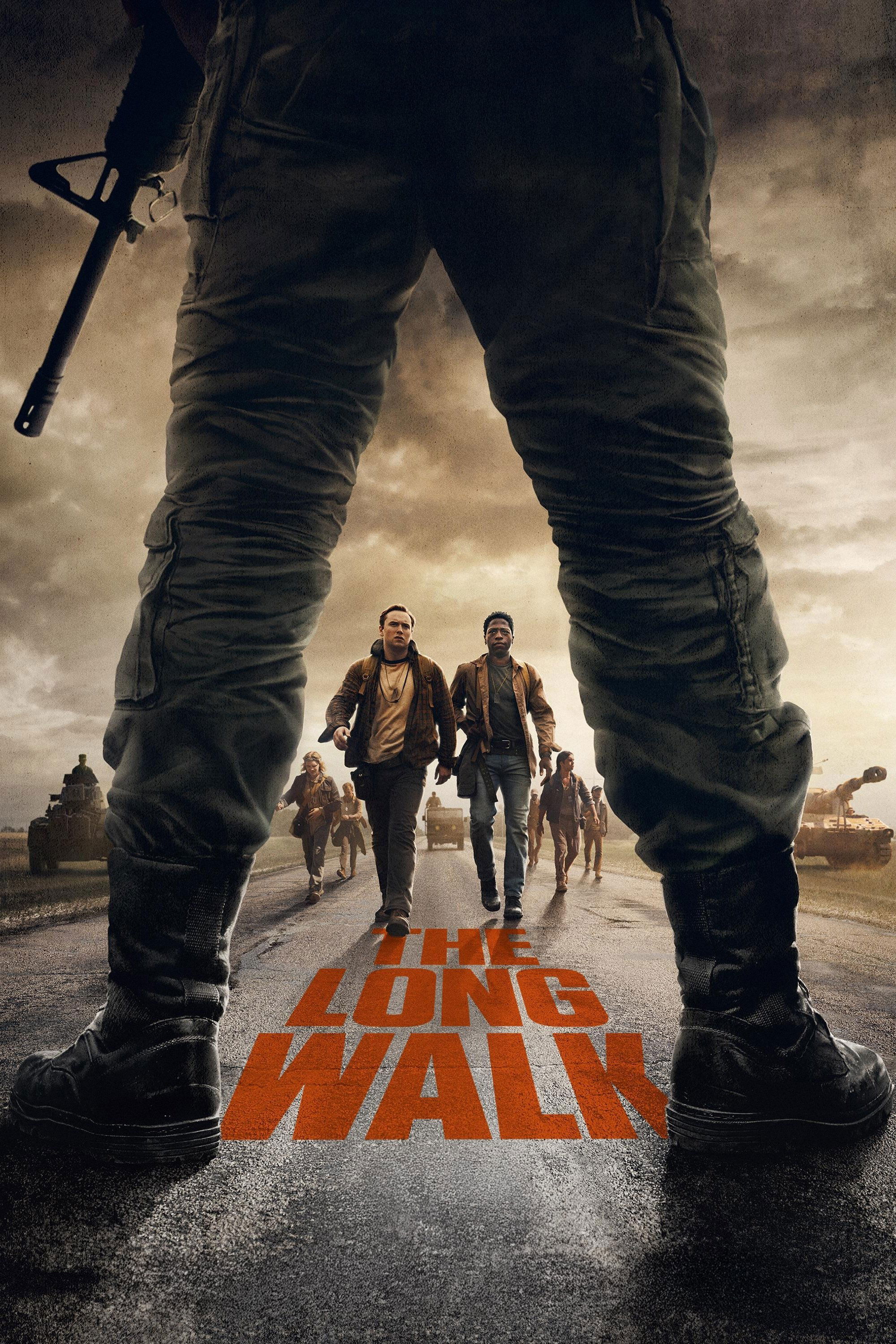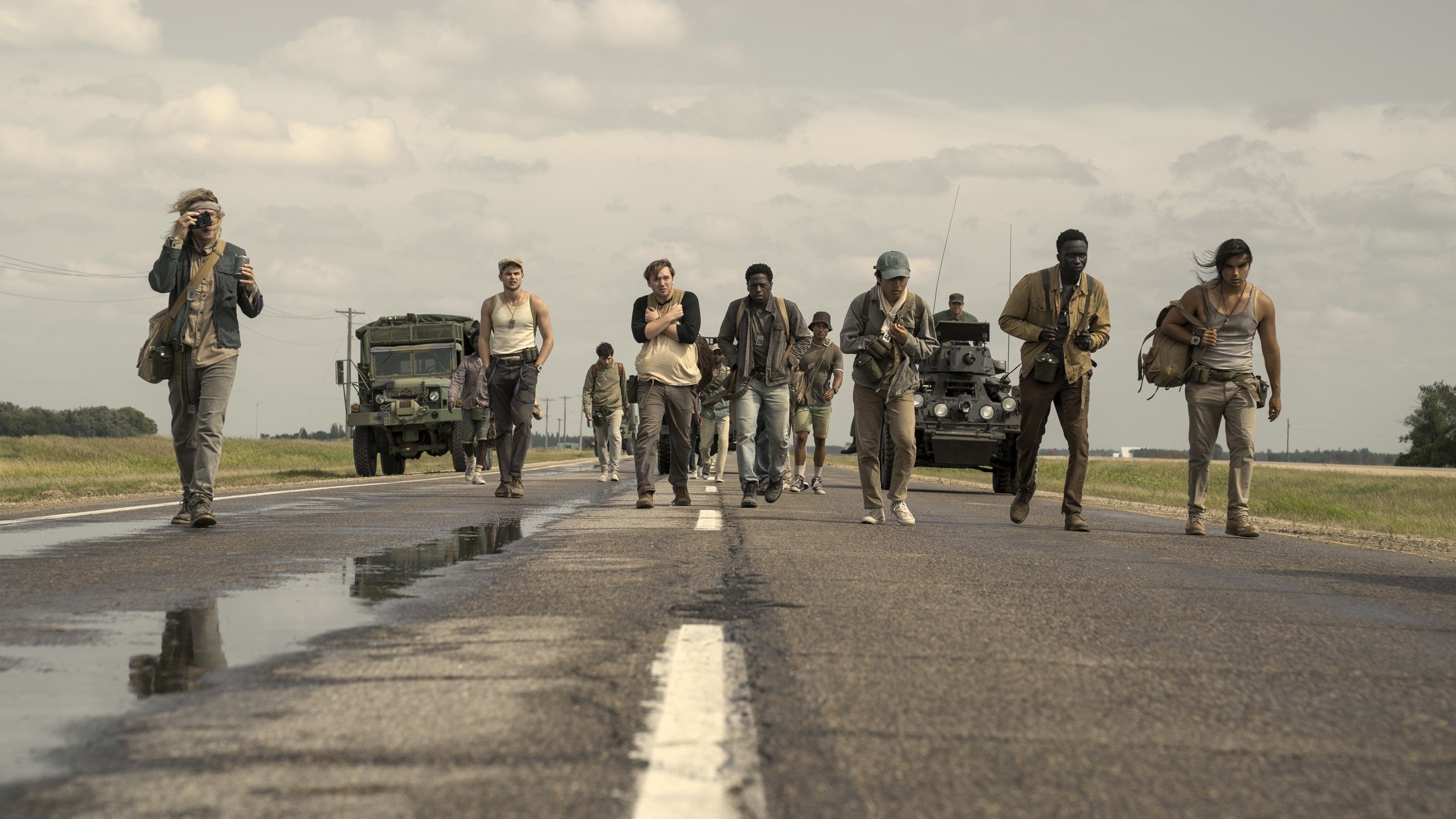The Long Walk is set in a future that looks suspiciously like the past, specifically, the part of the past where young men were thrown into meat grinders for the entertainment of the masses, bread and circuses on worn-out sneakers. You know the recipe by now: a dystopian contest, a batch of shellshocked kids, the grim click of marching boots. But here’s the surprise: this time the game is walking. Just...walking. For nearly two hours, plus change.
And if you are already muttering, “Wasn’t this The Hunger Games?” you’re either ahead of the curve or just good at recognizing track marks since Francis Lawrence, the maestro behind Katniss and her endless arrow draws, slides behind the camera again. Only this time, he shortens the sport, stretches the time, and leans in on the monotony. Walk, talk, drop. Repeat.
Let’s be fair. Ambition matters, and this film’s got its flag planted right in the existential mud. Stephen King’s 1979 original (written, with wonderful perversity, under the B-movie-ready pseudonym Richard Bachman) isn’t just the proto-Hunger Games; it’s a marathon of misery where long odds shrink, one footstep at a time. What’s the purpose here? I think the film is reaching, aching, even to strip spectacle down to the white, exposed bone: a fatal parade, the slow grind of hope through miles of gray road and blisters. It should be harrowing, immersive, unbearably tense.
Should be.
Let’s talk about what we actually get. The opening death, first kid’s face essentially turned into cherry cobbler by a bullet suggests, for one lurid minute, we might be going brutal, even sickly funny, a grindhouse Lord of the Flies. But no, the carnage quickly sours into routine. Warning forty-five comes and goes, and somewhere in between, a hapless walker tries to relieve himself and gets taken out mid-squat, wattery shit and all. Now, if you need a metaphor for how this movie treats its own fleeting dignity, that’s not a bad one.
But here’s the real trick the film never learns: give us someone worth a damn to root for. Lawrence lines up his walkers, each with their quota of sad backstories and haunted stares but forgets to give them actual beating hearts. Nobody registers as more than a casting call and a sob story. Their conversations aren’t confessions, just filler, each kid barely a sketch before he’s a corpse. Somewhere after mile 100, I gave up sorting protagonists from cannon fodder and started wishing the whole pack would just drop at once. Call it dystopian detachment, but by the end, I didn’t just have no favorite, I didn’t give a single damn if any of them made it.
By mile 250, you may spot the desperate filmmaking tricks: kids wobble in their socks, shirts soak through with sweat (or are meant to), but nobody really seems tired in the way that exhaustion registers on real human faces. Dialogue that started sharp as a hangnail soon blunts into endless, redundant exchanges (“What are you walking for?” “Because I have to.” And so on. And on). David Jonsson’s Pete, at least, tries to inject soul into the proceedings, he delivers his grief and idealism like a man who hasn’t learned all his lines but intends to mean them anyway.
There’s one moment crying out for salvation, a late-night stretch where the boys briefly bond, as rain slants down and the camera lingers on the battered faces. Someone sings, soft and shaky, and for half a breath you feel what King wrote: desperate longing, the hallucinated unity of doomed youth. But the film can never decide whether it wants to be a bleak art-walk or a parade of shock deaths, so it hedges, and ends up drifting listlessly between. Mark Hamill shows up, channeling Jack Nicholson by way of a haunted DMV clerk, and you wonder if he’s having more fun than the rest of us. Or anyone, really.
Now, I can practically hear the counterargument: “But it’s faithful! King’s book is all about boredom, fatigue, a world where the cruelty is methodical and dull!” True, and at nearly two hours of watching fresh-faced actors trudge for their lives in very clean shirts, you too may discover the punishing side of authenticity. This is a movie that tries so hard not to pander to the spectacle crowd, it winds up punishing everybody else, including itself.
Did I mention the ending? Let’s just say it falls flatter than any boy who couldn’t keep up, and with about as much ceremony. The last wish, the big rebellion, gets delivered not with catharsis but with the limp inevitability of a scheduled bathroom break, with worse timing.
At the end, “The Long Walk” left me less shaken by societal critique and more just professionally footsore. Great trash, like the old Gamera movies or even Lawrence’s own first Hunger Games, at least has the decency to entertain or appall us with style, wit, or some flicker of invention. This film, for all its literary pedigree and bloody-minded seriousness, keeps putting one foot in front of the other until, limping and battered, it finally gives out.
So if you prize a movie that walks the walk, and talks, and talks, and talks the entire way, maybe this is your marathon. The rest of us can sit this one out, shoes untied and blisters intact.










